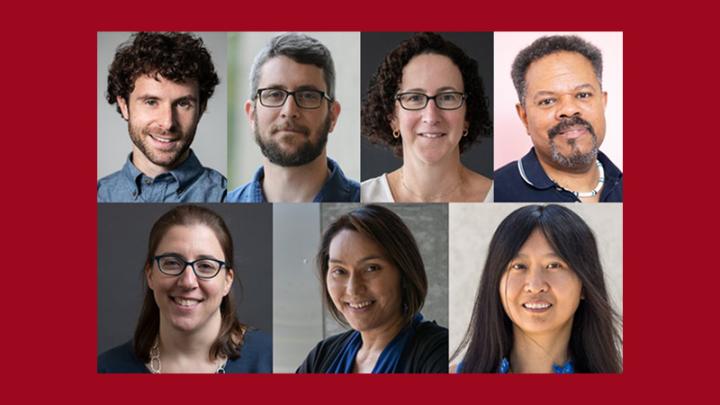Seven Harvard alumni have been named fellows by the MacArthur Foundation this year. The fellowship, commonly referred to as the “genius” award, recognizes recipients for their “ innovation and creativity and their potential to make important contributions to our communities and society.” The Harvard-affiliated recipients of the $625,000 “no strings attached” grant are as follows:
- Matthew Aucoin ’12: A composer and conductor who “melds sound and language to create musical works that vividly communicate the nuances, ambiguities, and multiple meanings of texts in musical form.” Among his early works is Second Nature, an opera that tells a dystopian fairy tale in which two children meet a monkey who’s been growing a real, illegal fruit tree.
- Clifford Brangwynne, Ph.D. ’07: A biophysical engineer who uses “the principles of soft matter physics and cell biology to illuminate the mechanisms of cellular compartmentalization that drive biological development.”
- Amy Finkelstein ’95, JF ’05: a health economist who formulates “robust experimental designs that provide data-driven guidance for innovations in health care theory, policy, and delivery.”
- John Keene ’87: a writer who explores “the impact of historical narratives on contemporary lives, and re-envisioning the history of the Americas from the perspective of suppressed voices.” Keene was a founding member of the Dark Room Collective, a group that celebrated the works of African-American poets during the late 1980s.
- Kristina Olson, Ph.D. ’08: a psychologist who “advances the scientific understanding of gender by shedding light on the social and cognitive development of transgender and gender-nonconforming youth.” Olson has previously studied “the lucky effect,” which shows that even young children tend to show bias toward the more fortunate.
- Sarah Stewart ’95: a planetary scientist who advances “new theories of how celestial collisions give birth to planets, including the Earth and Moon, and their physical, geological, and geochemical features.”
- Doris Tsao, Ph.D. ’02: a neuroscientist who studies “the fundamental neural principles that underlie one of the primate brain’s most highly specialized tasks: recognizing a face.”









